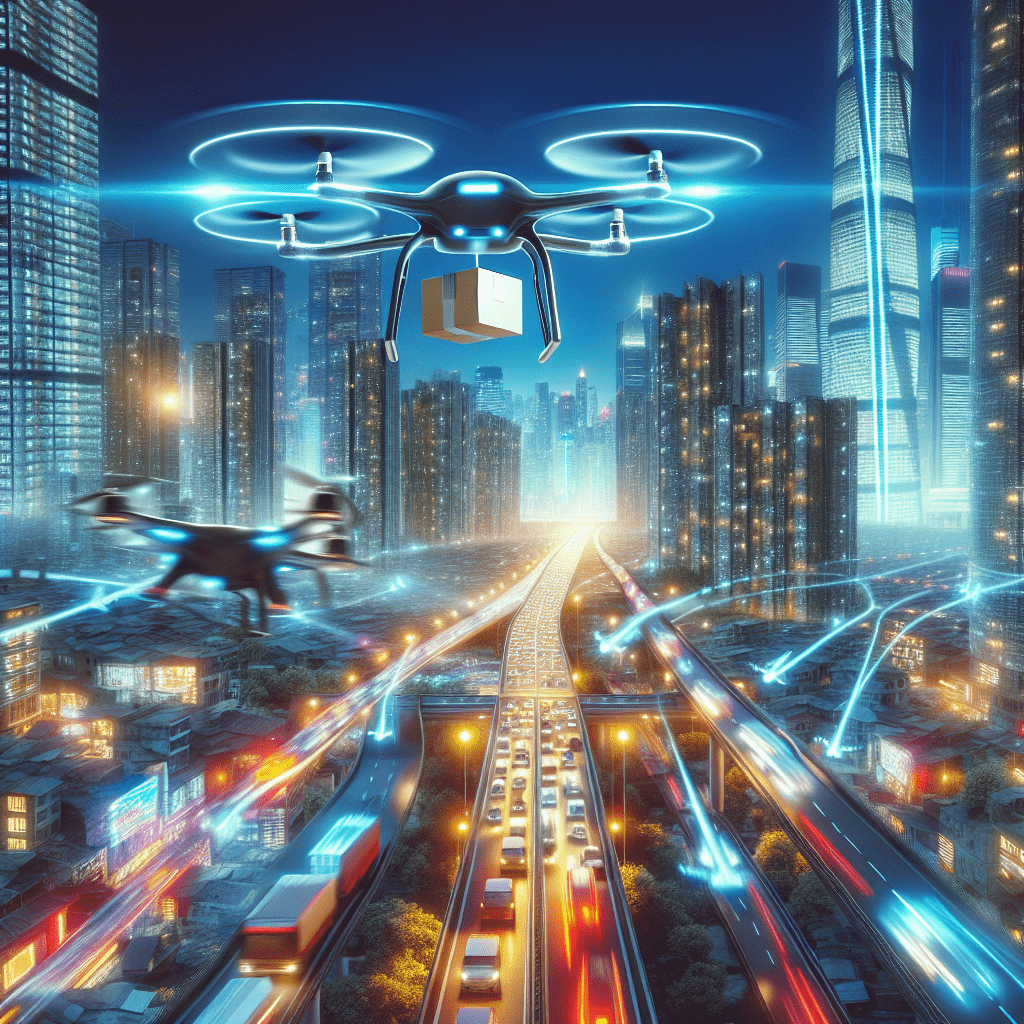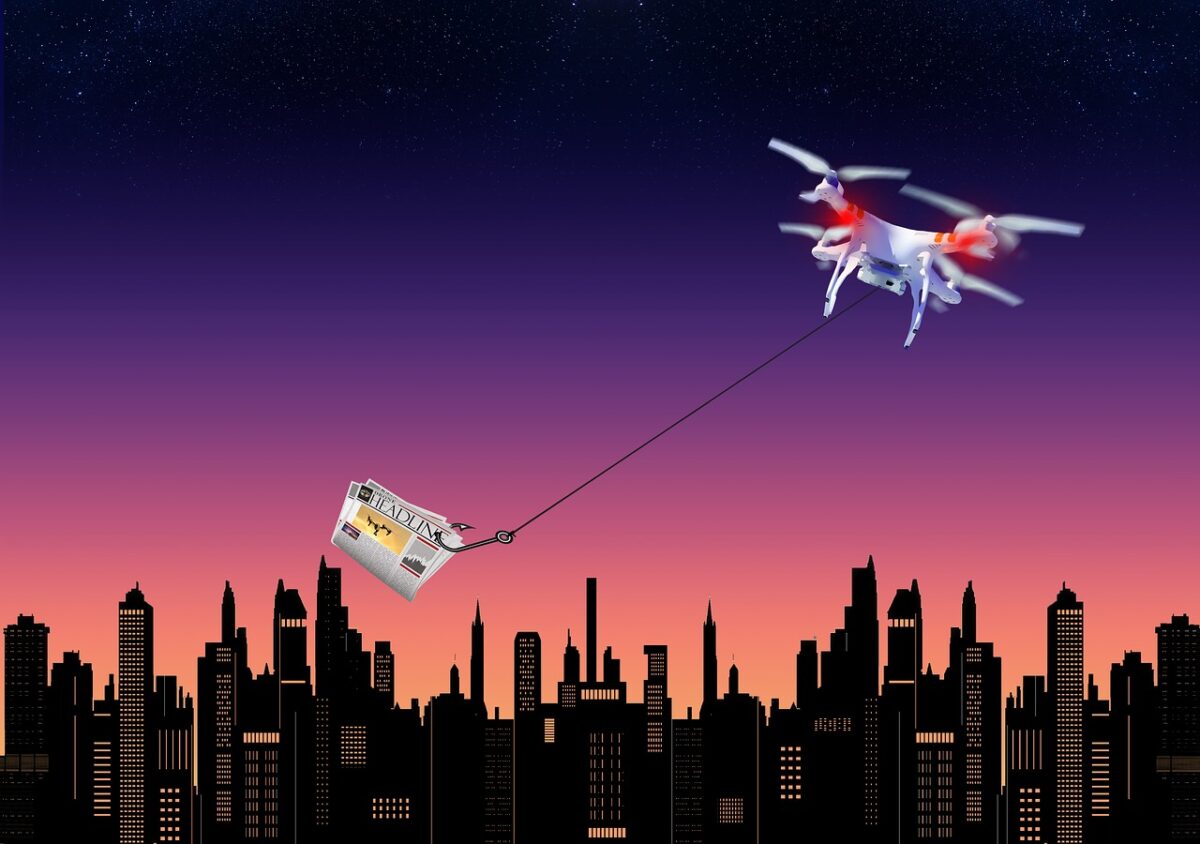Imagine a world where packages are delivered to your doorstep by drones, cutting down on delivery times and traffic congestion. This is not a dream, but a reality that is rapidly becoming integrated into the logistics industry. Drones are revolutionizing the way we think about delivery, offering incredible possibilities for speed, efficiency, and cost-effectiveness. In this article, we will explore how drones are transforming the logistics industry and shaping the future of delivery. Get ready to be amazed at the incredible advancements and the exciting possibilities that lie ahead.
Thank you for reading this post, don't forget to subscribe!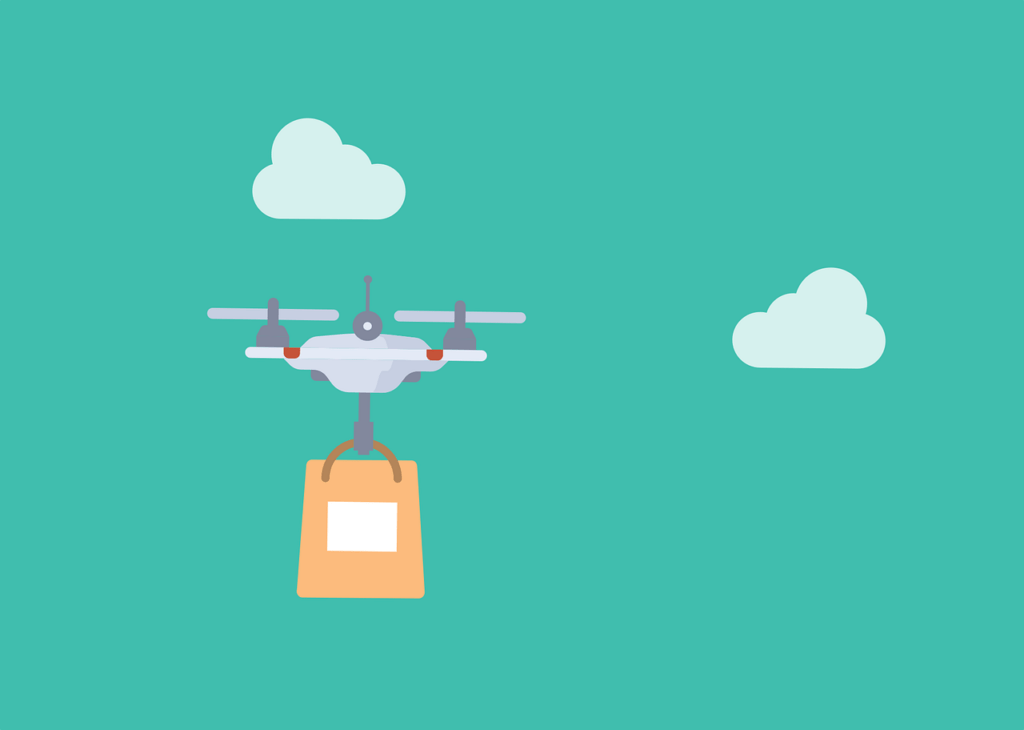
Current State of Delivery
Traditional delivery methods
Traditional delivery methods in the logistics industry have always been heavily reliant on vehicles such as trucks and vans. These methods involve transporting goods from one location to another through established road networks. While this approach has been effective for many years, it does come with its fair share of challenges.
Challenges in the logistics industry
The logistics industry faces numerous challenges that impact the efficiency and cost-effectiveness of delivery processes. One of the major challenges is traffic congestion, especially in urban areas, which can lead to delays in delivery times. Another challenge is the high cost of fuel, which contributes to the overall expenses of running a delivery fleet. Additionally, the last mile delivery is a particularly complex task that involves delivering packages to individual households, often in hard-to-reach areas or densely populated neighborhoods.
Introduction to Drone Delivery
Definition of drone delivery
Drone delivery refers to the use of unmanned aerial vehicles, commonly known as drones, to transport goods from one location to another. It involves the autonomous or remotely-controlled flight of these devices, allowing for quick and efficient delivery without the need for traditional transportation methods.
Advantages of drone delivery
Drone delivery offers numerous advantages over traditional delivery methods. Firstly, drones can significantly reduce delivery times as they are not affected by traffic congestion or road conditions. This means that packages can be delivered to their destinations much faster, thereby improving customer satisfaction. Secondly, drone delivery can substantially reduce delivery costs by eliminating the need for fuel and reducing the manpower required for traditional delivery fleets. Lastly, drone delivery can provide access to remote or hard-to-reach areas that are often challenging for traditional delivery vehicles to navigate.
Drone Technology
Types of drones used in delivery
There are various types of drones used in delivery operations. Fixed-wing drones, resembling miniature airplanes, are commonly used for long-distance deliveries as they have the capacity to carry heavier payloads. Multi-rotor drones, on the other hand, are more suitable for shorter distances and are more maneuverable in tight spaces. Hybrid drones, combining the capabilities of both fixed-wing and multi-rotor drones, offer a versatile solution for different delivery scenarios.
Features and capabilities of drones
Modern delivery drones boast impressive features and capabilities that make them ideal for transporting goods. Many drones are equipped with GPS systems, allowing them to navigate accurately and autonomously to their intended destinations. Some drones also incorporate collision-avoidance sensors to ensure safe flight and prevent accidents. Furthermore, advancements in battery technology have extended the flight time of drones, enabling them to cover longer distances without requiring frequent recharging.
Regulations and Legal Challenges
Current regulations on drone delivery
The use of drones for delivery purposes is subject to regulations imposed by aviation authorities and government bodies. These regulations vary across countries and are constantly evolving to address safety and privacy concerns. It is important for drone operators to stay updated with the latest regulations to ensure compliance and avoid legal issues. Some common regulations include altitude limits for drone flights, restrictions on flying in certain areas such as airports or densely populated areas, and the requirement for drone operators to obtain appropriate licenses or permits.
Legislation regarding drone use
In addition to regulations specific to drone delivery, there are also broader legislation and legal frameworks that govern the use of drones in general. These laws often cover privacy protection, data collection, and airspace management. Governments worldwide are actively developing legislation to balance the integration of drones into the logistics industry with the need to preserve public safety and privacy. It is crucial for both drone operators and logistics companies to adhere to these laws to maintain ethical practices and avoid potential legal ramifications.
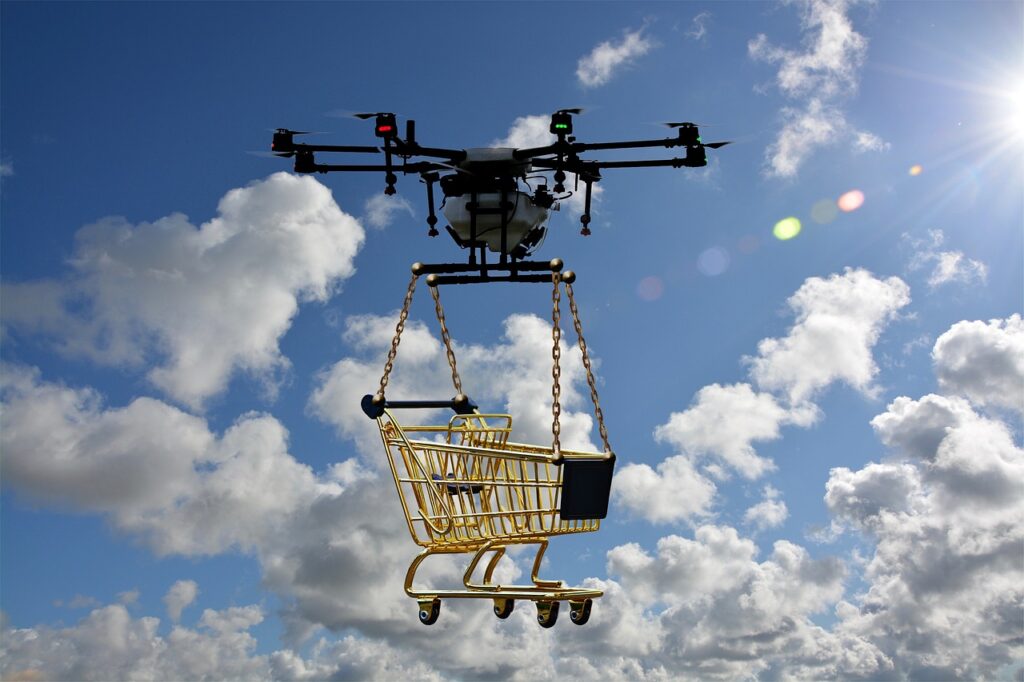
Safety and Security Measures
Ensuring safety during delivery
Safety is a paramount concern when it comes to drone delivery. To ensure safe operations, drones are equipped with various safety features. For instance, many drones include redundant systems to prevent system failures during flight. They also have real-time monitoring capabilities, allowing operators to monitor the status of the drone and address any potential issues promptly. Additionally, drones are designed to automatically avoid obstacles, ensuring safe navigation during flight.
Preventing unauthorized access and theft
Security measures are also implemented to protect drone deliveries from unauthorized access and theft. Drones can be equipped with tamper-proof packages that require specific authentication codes for opening. Additionally, drones can utilize secure communication protocols to ensure that the transfer of information between the drone and the control center is encrypted and protected from interception. These measures help maintain the integrity and security of the delivered goods throughout the entire delivery process.
Impact on the Logistics Industry
Faster and more efficient deliveries
Drone delivery significantly impacts the logistics industry by making deliveries faster and more efficient. With the ability to bypass traffic and navigate directly to the destination, drones eliminate many of the delays associated with traditional delivery methods. This not only improves customer satisfaction but also allows businesses to meet tighter delivery windows, especially in time-sensitive industries such as e-commerce, where speedy fulfillment is crucial.
Reduced costs and increased profitability
By adopting drone delivery, logistics companies can achieve substantial cost savings. Drones require less maintenance and have lower operational costs compared to traditional delivery vehicles. Moreover, the reduction in delivery time and the ability to optimize routes and schedules can lead to increased productivity and overall efficiency. These advantages contribute to increased profitability for logistics companies that adopt drone delivery as part of their operations.
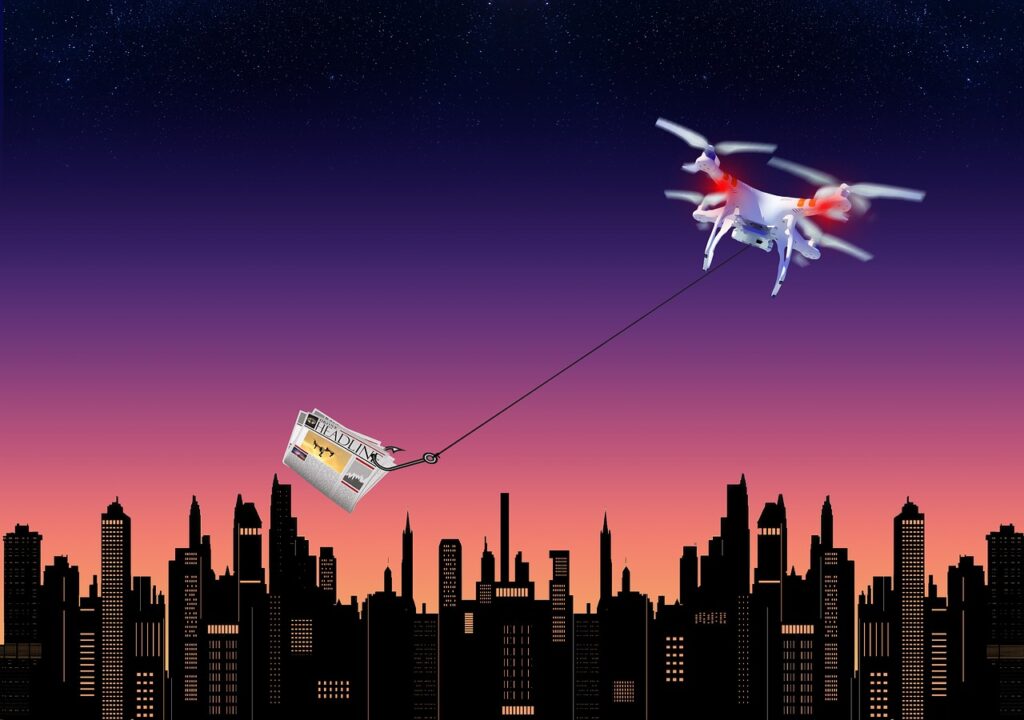
Last Mile Delivery
Challenges of last mile delivery
Last mile delivery poses unique challenges due to the complexity of navigating crowded residential areas, apartment buildings, and remote locations. Traditional delivery vehicles often struggle to reach these destinations efficiently, leading to delays and increased costs. The final leg from a distribution center to a customer’s door is the most expensive and time-consuming part of the delivery process and has always been a pain point in the logistics industry.
How drones can solve last mile delivery problems
Drones offer an innovative solution to the challenges of last mile delivery. With their agility and ability to fly directly to a destination, drones can navigate complex terrain and deliver packages directly to customers’ doorsteps. This eliminates the need for delivery vehicles to maneuver through congested residential areas, greatly reducing the risk of delays and increasing efficiency. Drones can also deliver packages to remote areas or locations with limited accessibility, enabling logistics companies to reach customers they previously struggled to reach, further enhancing their service capabilities.
Environmental Considerations
Reduced carbon footprint
One of the significant environmental benefits of drone delivery is its potential to reduce the carbon footprint associated with traditional delivery methods. Traditional vehicles emit greenhouse gases during transportation, contributing to air pollution and climate change. By replacing or supplementing traditional delivery methods with drones, the logistics industry can significantly reduce its carbon emissions, thus promoting sustainability and environmental conservation.
Sustainable logistics practices
Drone delivery is part of a shift towards more sustainable logistics practices. In addition to reducing carbon emissions, drone delivery can also lead to optimized route planning and reduced congestion on roads, further minimizing the environmental impact of delivery operations. This aligns with the growing demand for eco-friendly practices and reflects positively on the reputation of logistics companies that prioritize sustainability.
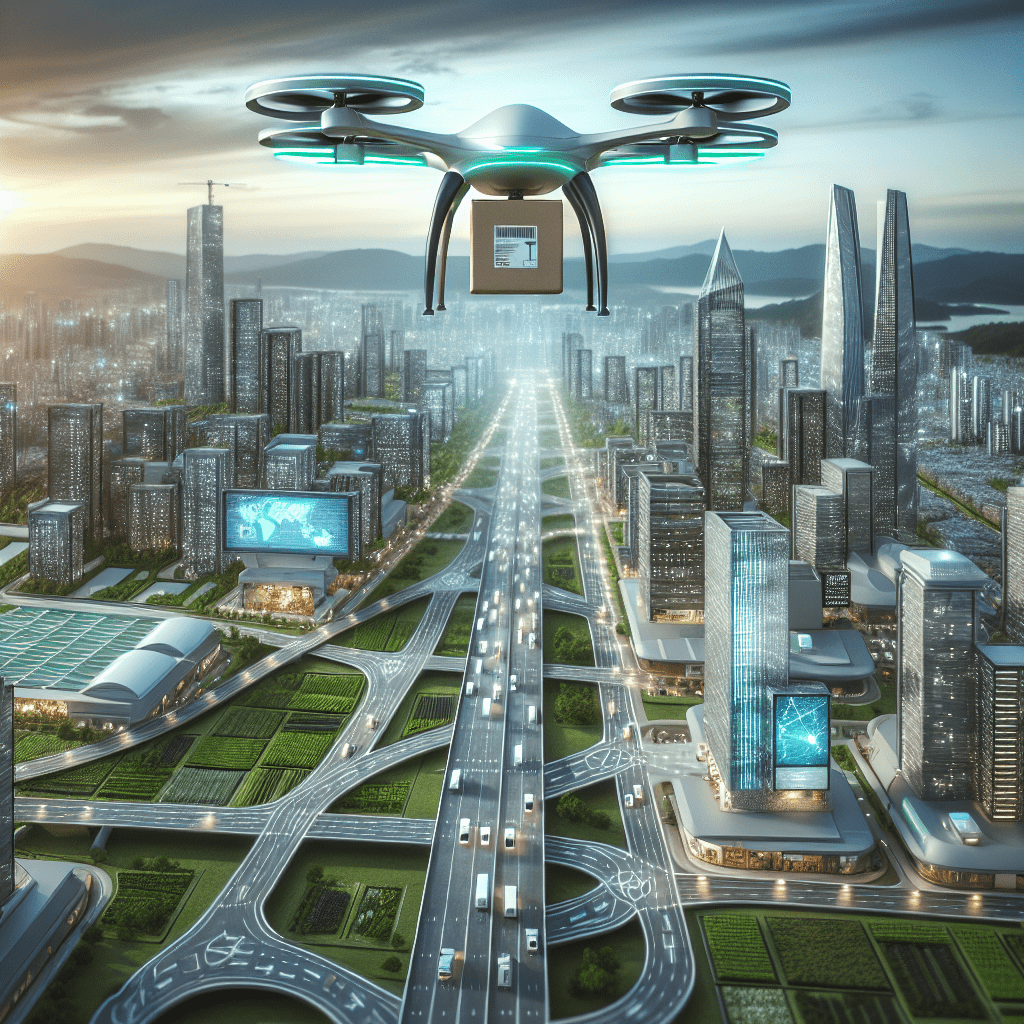
Potential Applications
Medical and emergency deliveries
Drone delivery has the potential to revolutionize medical and emergency deliveries. In situations where time is critical, such as delivering medical supplies to remote areas or transferring organs for transplantation, drones can provide a fast and efficient solution. Medical personnel can rely on drones to transport essential supplies quickly, potentially saving lives and improving healthcare accessibility.
E-commerce and retail deliveries
E-commerce and retail industries stand to benefit greatly from drone delivery. With the ever-increasing demand for quick and convenient online shopping, drones offer a solution to expedite the fulfillment and delivery of packages. Consumers can expect faster delivery times, and businesses can streamline their operations by integrating drone delivery into their logistics strategies. This opens up new possibilities for the growth of e-commerce and allows retailers to offer unparalleled customer experiences.
Challenges and Limitations
Weather conditions affecting drone flights
One of the key challenges for drone delivery is weather conditions, particularly wind and rain. Strong winds can disrupt drone flights, making it unsafe or impossible to complete deliveries. Rain can also pose a risk to the integrity of packages and the stability of the drones. These weather-related limitations necessitate the development of advanced drone technologies that can effectively handle adverse weather conditions and ensure reliable and safe deliveries.
Limited payload capacity
Another limitation of drone delivery is the limited payload capacity of most drones. While technology is advancing rapidly, drones currently have restrictions on the weight and size of packages they can carry. This makes it challenging to transport larger or heavier items via drones. However, as drone technology continues to evolve, it is likely that payload capacity will increase, allowing for a broader range of items to be delivered via drones.
In conclusion, drone delivery holds immense potential to revolutionize the logistics industry. With faster and more efficient deliveries, reduced costs, and increased profitability, drones offer a solution to many of the challenges faced by traditional delivery methods. They have the ability to solve the complex last mile delivery problem and contribute to sustainable logistics practices by reducing carbon emissions. Furthermore, the applications of drone delivery extend beyond traditional deliveries, allowing for medical and emergency deliveries as well as supporting the growth of e-commerce and retail industries. While there are challenges and limitations to overcome, ongoing advancements in drone technology and evolving regulations make the future of drone delivery an exciting prospect for the logistics industry.
